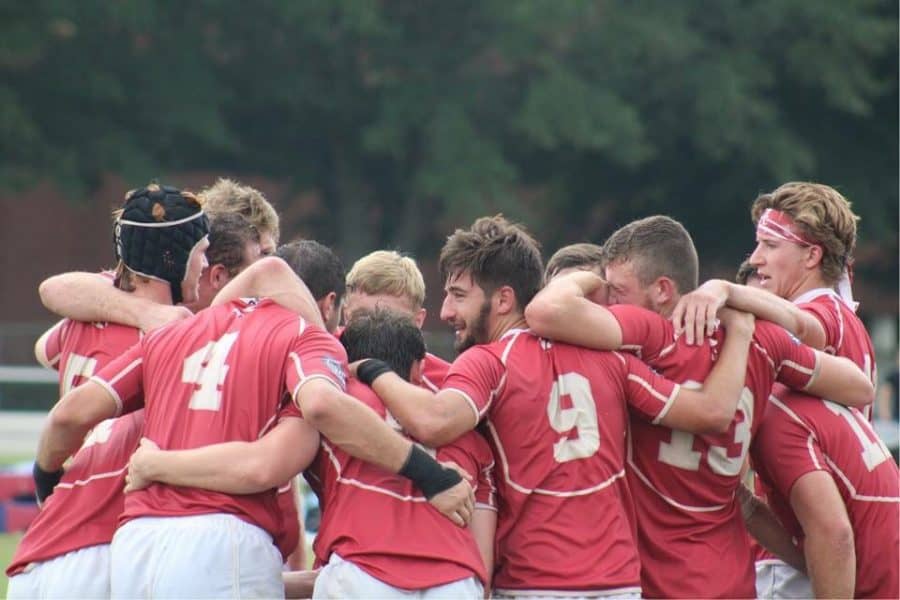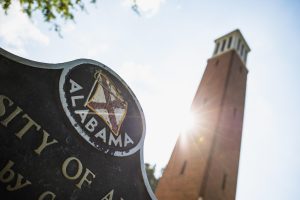Alabama Rugby sets goals higher than winning
January 28, 2019
Considered the big brother of football by many, men’s rugby is thriving at The University of Alabama, and the team’s goals transcend wins on the field. It wants to spearhead the charge of the fastest-growing sport in the United States.
Coming off of its first undefeated regular season in fifteens play (15 players playing at a time), the Alabama men’s rugby team is poised to reach the same level of success in the faster and more free form of sevens ball. Coach Eddie Buckner, currently in his third year as both coach of men’s and women’s rugby, has shifted the focus of practice to prepare for the conditioning-heavy sport.
“Because sevens is a faster-paced game, we have focused a lot on our fitness,” Buckner said. ”The players are going to cover 2,000 meters in 15 minutes on average in sevens. Because of that, we have to focus a lot on our ability to sprint and our ability to pass.”
Fortunately for the Tide, motivation to become a faster and stronger team will not be an issue. Sophomore scrum-half Harrison Dulgarian said the team is always eager to hold each other accountable – even on a day with cancelled practice.
“I get two or three texts from teammates asking if I wanted to go run or if I wanted to go lift,” Dulgarian said. “We have to hold each other accountable because it’s so easy to stray away.”
While club sports may have the stigma of being less serious or competitive compared to their NCAA counterparts, the teamwork and hours put in for rugby remains a focal point for a nationally competitive team. Alabama’s team is composed of 15 members, half of which are seniors. The Crimson Tide will have a different approach coming into its season-opening sevens tournament this Saturday in Columbia, South Carolina, where it will play in-conference rival and powerhouse South Carolina Gamecocks.
Dulgarian and sophomore outside-center Brendan Watson, who both played and helped start rugby at their respective high schools in Los Angeles and Chicago, set the tone for a team that had roughly half the players participate in high school.
Watson is no stranger to attracting players to buy in to the love of the game.
“I started the rugby program sophomore year of high school,” Watson said. “We got a coach from a club team around the area, so after I played there, I knew I had to play in college.”
Dulgarian said that when a team has a lot of incomers just willing to play and compete with their brothers, it makes things easier for a program built on an old-school mentality.
The now-niche rugby culture in America lends itself to the brotherhood and inclusive philosophy that Alabama has and continues to establish in club rugby.
“I would say this will be the tightest team I play for in my whole life,” Dulgarian said. “There is just something about throwing on that crimson and white and seeing the guy next to you bleeding for the Tide. It’s a beautiful thing.”
The team has been one of the four most competitive in the Southeastern Collegiate Rugby Conference, along with Kentucky, South Carolina and Tennessee. As that success has become perpetual, goals begin to transcend winning for the program.
“I’m hoping that rugby grows in the South,” coach Buckner said. “Here at Alabama, the team has potential to be one you look out for in the South. People here love Alabama for the sake of loving Alabama and can get this fanbase going and bring the team some more clout. There’s a chance for these guys in college to potentially play nationally and making a living doing something they love.”





















